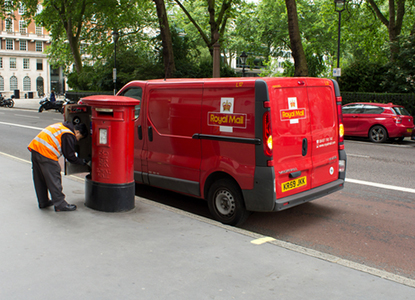By Richard Johnstone | 17 December 2014
An independent review has urged the government to reform the process of state privatisations after finding that the controversial sell-off of the Royal Mail could potentially have raised an extra £180m for taxpayers.

The examination of the sale by former Labour Treasury minister Lord Myners said the current framework for sell-offs may not be able to realise maximum value for the taxpayer.
Under the existing system, the government appoints advisors who assess the potential market for shares in a state-owned company, and what price could be paid, in a process known as book-building.
This was criticised following the part-privatisation of the Royal Mail when the National Audit Office concluded taxpayers lost out after the government set an overly cautious share price.
Shares were offered at 330 pence – the highest level possible under the prospectus – raising £2bn for the Treasury. But they closed at 455 pence in their first day of trading, a 38% increase in value and worth £750m to the new owners.
Due to the popularity of the sale from institutional investors, the government decided that any private individuals wanting to buy shares to be limited to £10,000 allocation.
Although 94.6% of retail applicants placed orders for £10,000 or less, the Myners’ review concluded that those who applied for more than £10,000 represented a further £1.45bn of demand, which in a different structure might have increased the price paid to the taxpayer.
The government did not test demand for shares above 330p, but there was now consensus that a premium of between 20p-30p per share could have been added to the price – equivalent to an extra £120m–£180m for the Treasury.
Myners recommended the government consider whether in future sales, assets should be sold in tranches, allowing them greater flexibility to react to demand.
This is similar to the government’s sell-off of the taxpayer stake in Lloyds, which can be sold off in this way as it is already a listed company.
The government should also look to revise the book-building process to allow greater flexibility, as there was no expectation in the model that the price that could be charged would surpass the maximum calculated at the start of the process. This should become a 2 stage process, with a late supplementary prospectus on price issued once investors are better educated.
Publishing his recommendations, Myners said the Royal Mail sale was ‘a complex exercise executed with considerable professionalism’.
He added: ‘Many previous governments attempted to sell but failed. The sale was done against a backdrop of global economic uncertainty and a threat of industrial action, which go a long way towards explaining the cautious approach taken throughout the process.
‘We have not uncovered any evidence to challenge the general assertion that an IPO price greater than 350-360p could have been achieved through the book-build process and we accept that a decision to revise the range would have come with added uncertainty and risk. The right decisions were made.’
Business Secretary Vince Cable, who commissioned the review, said he would consider reforms to make the general process of future sales more transparent.
‘I would encourage financial regulators and those bringing companies to market to engage in this debate. In particular they should explore how digital auctions could, in certain circumstances, make the sale process much more flexible.’



















